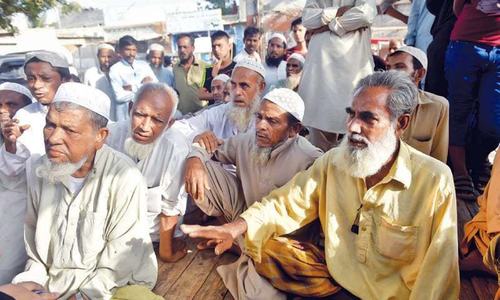ENDLESS streams of Rohingyas have crossed the Naf river into Bangladesh. The deaths of children at sea stand out most vividly. Rohingyas have left behind everything they had once known in the face of the Myanmar military’s brutalities against their own people.
And this has all happened because of the collective failure of the UN members to prevent and/or stop the carnage. The Rohingya crisis has steadily deepened resulting in one of the worst human catastrophes in recent history. More than half a million people have already crossed the border into Bangladesh in less than two months.
This is an unprecedented tragedy in human history. Yet, it was in the making for several years. Long before the recent burning and killings started, the warning signs were already there, building upon decades of persecution of the minority by the Buddhist majority in Rakhine state.
The state media continuously attacked the identity of the Rohingya Muslims, and falsely claimed that Rohingyas were “outsiders” and “illegal” Bengali migrants to Rakhine despite historical evidence of their presence in the Arakan region since the pre-British period.
According to some observers, the hatred and violence unleashed against Rohingya Muslims is an eerie reminder of Rwanda before the genocide there. When some Rohingyas took up arms to fight back against their decades-long persecution, the Myanmar military mounted a disproportionate response leading to the burning and looting of Rohingya villages, and indiscriminate killings of the Rohingyas —forcing them out of their own country.
Rohingya men, women and children who survived the atrocities and crossed the border to Bangladesh shared consistent accounts of Myanmar soldiers surrounding their villages, burning homes to the ground, stabbing and shooting innocent villagers and committing mass rapes.
According to Refugees International, the attacks and displacement that began in late August are of an entirely new scale and level of inhumanity. In addition to the more than half a million who have fled to Bangladesh, an estimated 200,000 people have been internally displaced in Myanmar’s strife-hit Rakhine. It is shameful that this tragedy happened under the leadership of Myanmar’s de facto leader Aung San Suu Kyi, now branded as one of the “great ethnic cleansers”.
The responses to date by the UN as a world body can at best be described as dismal. The condemnation by the secretary-general has not helped in any form or shape. Instead, an early response from the UN Security Council could have changed the tragic outcome in Myanmar. The Security Council, particularly two of the veto-wielding permanent members — China and Russia — should get the lion’s share of the blame for the lack of any decisive action. The failure of the Security Council has simply emboldened the Myanmar regime to continue its abuses against the Rohingya civilians.
This is amply demonstrated, according to Refugees International, by the refusal of the Myanmar regime to allow access to the UN fact-finding mission to investigate human rights abuses and unfettered access to humanitarian organisations for relief and rehabilitation in Rakhine.
The Asean countries have also equally failed the Rohingya refugees; the only response to the crisis has been a statement expressing “concern” over the situation. It has failed to take a stand against one of its member states carrying out a violent campaign of ethnic cleansing and for crimes against humanity. Amnesty International accused Asean of “failing” Rohingyas and asked the member countries to uphold the commitments to human rights enshrined in the Asean Charter.
Finally, the US state department recently expressed concerns that the Myanmar crackdown on the Rohingyas may destabilise the region and could draw international terrorists. However, there was no word on any punitive actions and whether the Trump administration would impose targeted sanctions against Myanmar’s military.
The situation on the ground in Bangladesh demands urgent attention and support for Rohingya refugees. Measures by the UN, the United States and international community should include: all-out pressure on Myanmar government, including targeted sanctions by the US government; immediate cessation of atrocities and abuses against Rohingya civilians in Rakhine state; full access for a UN fact-finding mission to investigate the atrocities; a plan for repatriation of the Rohingya refugees under UN supervision; and robust international humanitarian aid efforts and support to Bangladesh.
This will require a lot of hard work by the UN and multilateral systems and a willingness to invest political capital by regional powers such as China, India and other Saarc countries. Myanmar’s neighbours, allies and the larger international community should appropriately deal with the violation of human rights, death, and destruction perpetrated by the Myanmar regime. Otherwise, this may not be the last human tragedy of its kind.
Sadly, there seem to be too many similarities between the UN failures in Rwanda and Myanmar. The Rohingya tragedy should be a wake-up call to the international community to step up their efforts and solve the problem as quickly as possible. Otherwise, history will likely repeat itself.
—The Daily Star/Bangladesh
Published in Dawn, October 11th, 2017












































